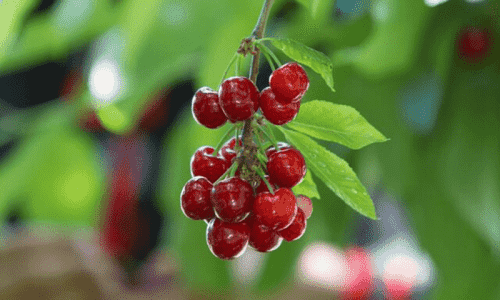ISLAMABAD: By the end of this month, Pakistan hopes to have shipped 260 tonnes of fresh cherries to China, utilizing a reefer container for the inaugural shipment.
The Trade Development Authority of Pakistan (TDAP) made an official notification stating that starting on Monday and continuing until June 30th, the first cargo will be six tonnes, then 12 tons.
The phytosanitary agreement between China and Pakistan in 2022, which allowed Beijing to give Islamabad market access for fresh cherries, is what has allowed the country to be successful in exporting the fruit.
The majority of China’s yearly demand for cherries—roughly 350,000 tons worth at $3 billion—comes from Chile.
In Gilgit-Baltistan, over 5,000 tonnes of cherries are produced per season. In local marketplaces, these cherries are primarily offered at discounted prices. The growers are now able to supply the demands of the Chinese market thanks to the treaty with China.
The Department of Plant Protection (DPP) and the TDAP helped eligible orchard owners register with the General Administration of Chinese Customs (GACC) in order to carry out the protocol.
The Pakistan Horticulture Development & Export Company (PHDEC) has also been involved in developing cherry products by training farmers in the production of popular kinds such as French and black cherries.
As a result of these initiatives, Rahim Abad now has over 100 registered cherry orchards as well as a cold storage and packing facility with GACC. The mission to transport fresh cherries to China began with the approval of the processing facility and the cherry orchards.
The necessary reefer containers have been supplied by the National Logistic Cell (NLC). Cherry exporters’ logistical costs are covered by the Export Development Fund (EDF).
According to TDAP Chief Executive Zubair Motiwala, growers stand to gain significantly from cherry exports. He claimed that by looking into the sizable Chinese market, TDAP and PHDEC are attempting to guarantee growers receive the most benefits.
He added that in just one year after the cherry protocol was signed in November 2022, producers’ capacity had been increased and over 100 cherry orchards had been registered with GACC.
According to PHDEC CEO Athar Hussain Khokhar, the nation may take a sizable share of the $3 billion Chinese cherry market if it produces the necessary variety of cherries.
“GB growers have a significant competitive advantage due to their proximity and the increasing demand for their fruit in the Chinese market,” he continued.








